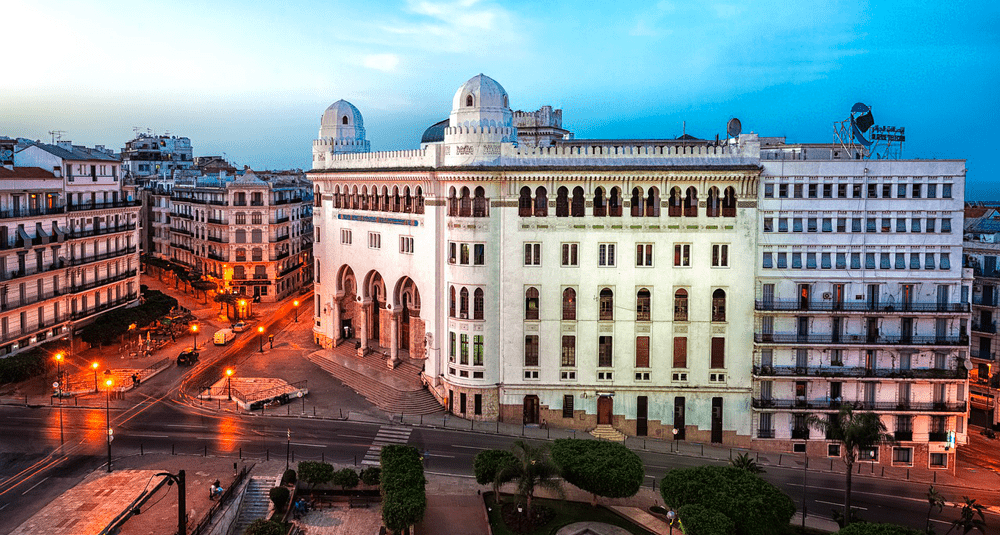What is the capital of Algeria?
Last Updated:
Algiers, the capital of Algeria, is an emblematic city of the Maghreb, located on the country’s northern coast, on the shores of the Mediterranean Sea. With a population of over 3 million, Algiers is the political, economic, administrative and cultural heart of Algeria. It is also the country’s main port, reinforcing its strategic role in commercial and maritime exchanges.
The name Algiers derives from the Arabic Al-Djazaïr, meaning “the islands”, in reference to the four small islands that once lay off the coast of the city before being attached to the mainland. This is also the origin of the name of the entire country. The city stretches out amphitheatrically on the hills overlooking the sea, offering a spectacular panorama blending tradition and modernity.
Historically, Algiers was founded in the 10th century by the Berber Zirids, before passing under Arab, Spanish and then Ottoman rule. During the Ottoman period, from 1515 to 1830, Algiers was a powerful base of the Regency of Algiers, famous in particular for its privateers. In 1830, the city was taken by the French, marking the beginning of the colonization of Algeria. It remained the territory’s capital until independence in 1962, when it became the capital of the new sovereign Algerian state.
The historic center of Algiers is dominated by the Casbah, an ancient labyrinthine district listed as a UNESCO World Heritage Site. With its narrow streets, white terraced houses and Ottoman palaces, the Casbah of Algiers is both a place of memory and a symbol of resistance, particularly during the War of Independence.
In addition to its historical importance, Algiers is today the country’s nerve center. The main political institutions, such as the Presidential Palace, the National Assembly and the ministries, are located here. It is also home to major universities, museums, including the Musée National des Beaux-Arts, and numerous cultural institutions.
Algiers is also a major economic center. Its port, one of the largest in the Mediterranean, plays a central role in Algeria’s maritime trade. The city is also home to numerous public and private companies, and its international airport, Houari Boumédiène, is one of the main transport hubs on the African continent.
In terms of urban planning, Algiers is a city of contrasts. There are colonial districts with Haussmann-style architecture, modern districts with large-scale housing estates built after independence, as well as shantytowns and informal districts reflecting social and demographic challenges.
Culturally, Algiers remains a dynamic capital. Theater, cinema, chaâbi and raï music, literature and the visual arts are particularly dynamic, despite social and economic tensions. Events such as the Pan-African Festival of Algiers and the International Book Fair bear witness to this effervescence.
Algiers, the capital of Algeria, is much more than just an administrative center. It’s a city with a thousand years of history, a rich heritage and a strategic crossroads between Africa, Europe and the Middle East. The keyword Algiers evokes the soul of a country, the challenges of a great contemporary metropolis and a powerful symbol of Mediterranean history.
You may also be interested in
geography

What is the capital of Algeria?
Answer
The capital of Algeria, Algiers is a large coastal metropolis on the Mediterranean, known for its Kasbah, its colonial history and its cultural dynamism.